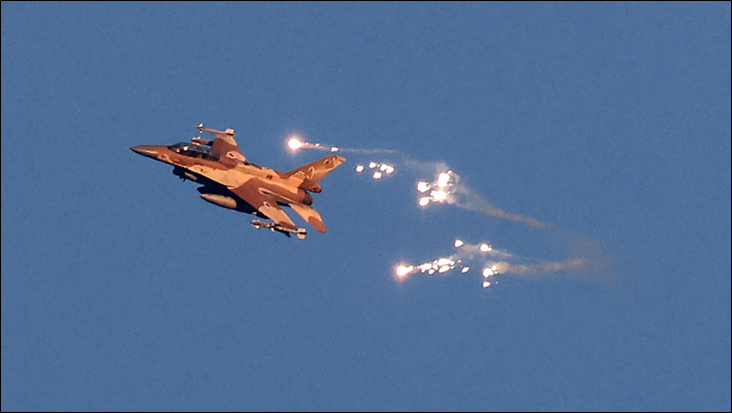Academy SITREP – Israel Conducts Preemptive Strike Against Hezbollah to Thwart Larger Attack

What has Happened:
- Early this morning, the IDF struck over 40 targets in Lebanon destroying thousands of rockets/launchers with about 100 jet fighters after it detected that Hezbollah was preparing for a major attack against northern and central Israel.
- Following the pre-emptive strikes, Hezbollah fired over 300 rockets and drones into northern Israel targeting military facilities, but many of these munitions were intercepted.
- Israel had been bracing for weeks for Hezbollah to retaliate for the killing of senior Hezbollah commander Fuad Shukr in Beirut on July 30th.
- Hezbollah stated that the attack was successful, and its military operation had “finished for the day,” but there was little evidence of any major damage (however there was one confirmed Israeli military fatality and limited reports of injuries).
- While the IDF said that it was still carrying out air attacks against Hezbollah targets, the situation seems to be de-escalating.
- The strikes this morning do not seem to have affected the ceasefire talks that continued today with mediators from the United States, Egypt, and Qatar meeting in Cairo with an Israeli delegation.
Why it Matters:
“Israel’s pre-emptive strikes on Hezbollah’s preparations to launch a massive missile and rocket barrage on Sunday may have de-escalated the military situation in the near-term. Both sides are claiming success, which could be an indicator of their intent to de-escalate the situation. Israel has exceptional intelligence and surveillance of southern Lebanon and has used pre-emptive strikes in the past to thwart Hezbollah’s attack preparations. Hezbollah and Iran are challenged in needing to respond to the assassination of the senior Hezbollah commander Fuad Shukr in Lebanon and Hamas political leader Ismail Haniyeh in Tehran. However, they fear Israel’s strategy of disproportionate attacks. Iran and Hezbollah do not want to put the Gaza ceasefire talks at risk. The current negotiations are their best chance to end the war and allow Hamas to survive to fight another day. It is hard to determine whether Iran is encouraging Hezbollah’s actions or if Hezbollah is acting independently since Iran has yet to conduct their own round of new attacks on Israel.” – General Robert Walsh
“A key part of the Israeli strategy will always be to exploit any opportunity to reduce ammunition stores and infrastructure as much as possible during an active conflict. They will always operate with a sense of urgency because a cessation of hostilities will reduce their ability to hit weapons storage facilities or maximize the impact of strikes against logistics and infrastructure. While Iran could be perceived as approving all strikes at this scale, Hezbollah will act, or not act, in their best interest. Part of that calculus may be to seek approval from Iran as well as to meter the strike as it risks the role they have as it relates to their ‘pseudo governance’ of certain regions of Lebanon. I agree that all parties seem to be focused on not letting this strike derail the peace talks given that the Israeli representatives departed for Cairo following the IDF strikes. It may prove the point that all parties are seeking to reach an agreement, albeit significant gaps remain between each party’s demands. For Netanyahu, it may be little more than sustaining the optic of seeking an end to hostilities. The focus on the ceasefire does not mean that Iran will forgo a strike against Israel following the 31 July assassination of Ismail Haniyeh. Iran can still choose the time and place of their strike which could be days, weeks, or months into the future.” – General Robert Ashley


